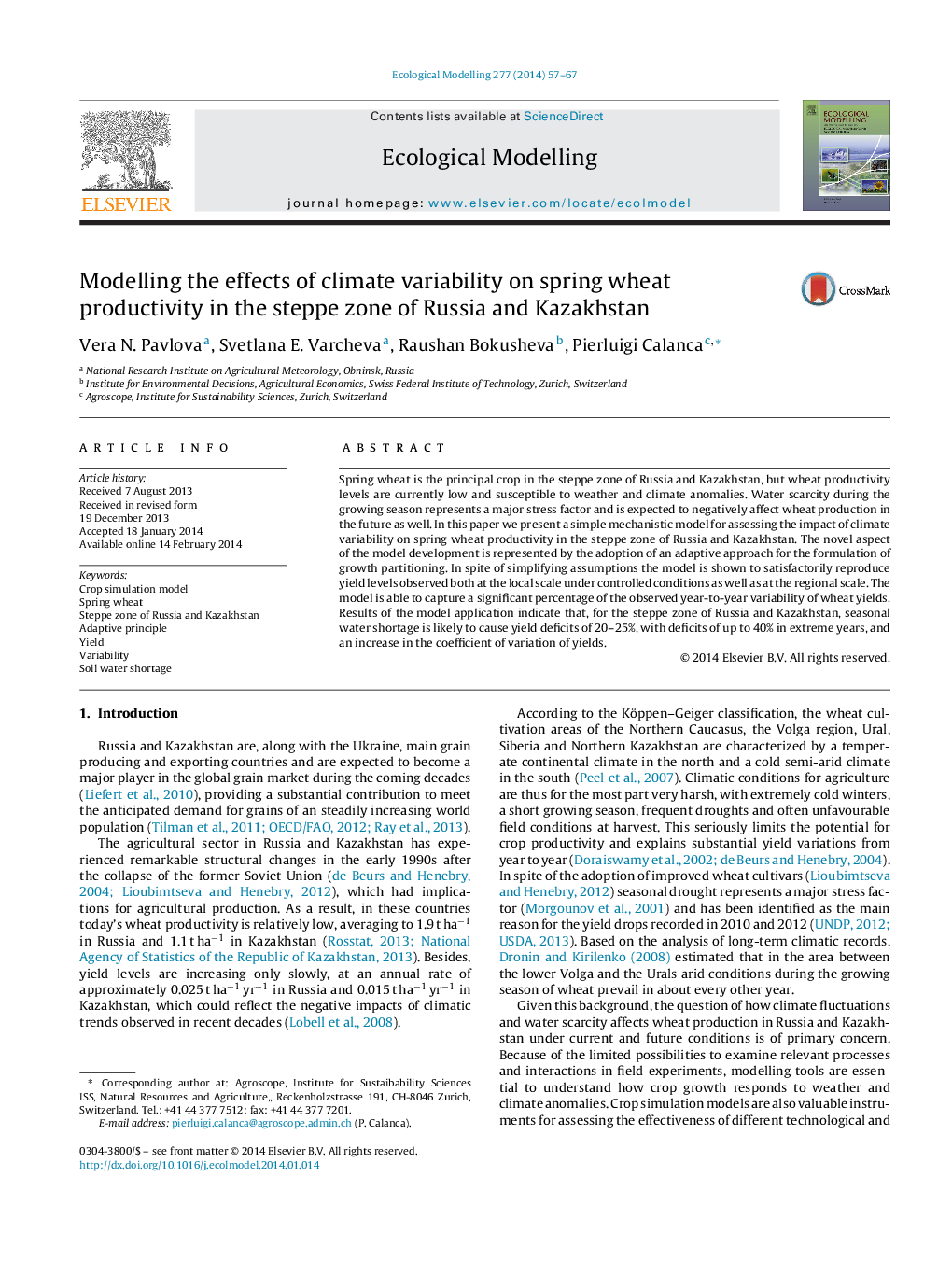| Article ID | Journal | Published Year | Pages | File Type |
|---|---|---|---|---|
| 4375986 | Ecological Modelling | 2014 | 11 Pages |
Abstract
Spring wheat is the principal crop in the steppe zone of Russia and Kazakhstan, but wheat productivity levels are currently low and susceptible to weather and climate anomalies. Water scarcity during the growing season represents a major stress factor and is expected to negatively affect wheat production in the future as well. In this paper we present a simple mechanistic model for assessing the impact of climate variability on spring wheat productivity in the steppe zone of Russia and Kazakhstan. The novel aspect of the model development is represented by the adoption of an adaptive approach for the formulation of growth partitioning. In spite of simplifying assumptions the model is shown to satisfactorily reproduce yield levels observed both at the local scale under controlled conditions as well as at the regional scale. The model is able to capture a significant percentage of the observed year-to-year variability of wheat yields. Results of the model application indicate that, for the steppe zone of Russia and Kazakhstan, seasonal water shortage is likely to cause yield deficits of 20-25%, with deficits of up to 40% in extreme years, and an increase in the coefficient of variation of yields.
Related Topics
Life Sciences
Agricultural and Biological Sciences
Ecology, Evolution, Behavior and Systematics
Authors
Vera N. Pavlova, Svetlana E. Varcheva, Raushan Bokusheva, Pierluigi Calanca,
